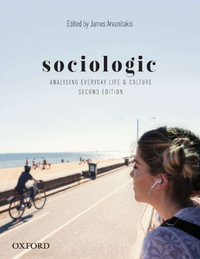Paul Stoneman and Nigel Gilbert breathe new energy into this classic bestselling textbook providing clear, relevant advice and extensive coverage of all the research methods you need to understand today's society.
Packed full of examples from across the social sciences, Researching Social Life sets out all of the challenges and opportunities of interpreting and conducting research with qualitative, quantitative and mixed methods.
The book follows the chronology of a typical research project, from initial conception through to the collection, management and analysis of data; it also includes material on how best to write up and disseminate your research. This pragmatic approach mirrors the reality of conducting research and allows the handpicked, internationally renowned contributors to embed real case studies from their own research in each chapter.
The student-oriented pedagogy is carefully woven throughout the book and further supported by a cutting-edge website. Key tools include:
- In-depth worked examples
- Case studies
- Discussion questions
- Checklists
- Annotated further reading
- Practical top tips for doing research.
With unparalleled breadth and depth this trusted and respected textbook is an essential guide for anyone engaging with social research.
Industry Reviews
'Researching Social Life remains the classic, essential guide to social research methods with updated and innovative chapters brought together by a superb team of editors and contributors'. Lisa Dikomitis, Department of Social Sciences, University of Hull, UK. -- Lisa Dikomitis 'This is an excellent and easily accessible compendium of essential research techniques in the social sciences. It is a comprehensive introduction to the field of qualitative social research and a faithful companion during the first steps into empirical research'. Tino Mietz, Faculty of Humanities, Eberhard Karls Universitat Tubingen, Germany. -- Tino Mietz 'Unlike other method texts, this one tells students in clear, readable language how to conduct research in the real world. Students will appreciate the global perspective and the intuitive organization of the book'. Leeda Copley, Department of Sociology, Gerontology and Substance Abuse Studies, University of Central Oklahoma, US. -- Leeda Copley
























